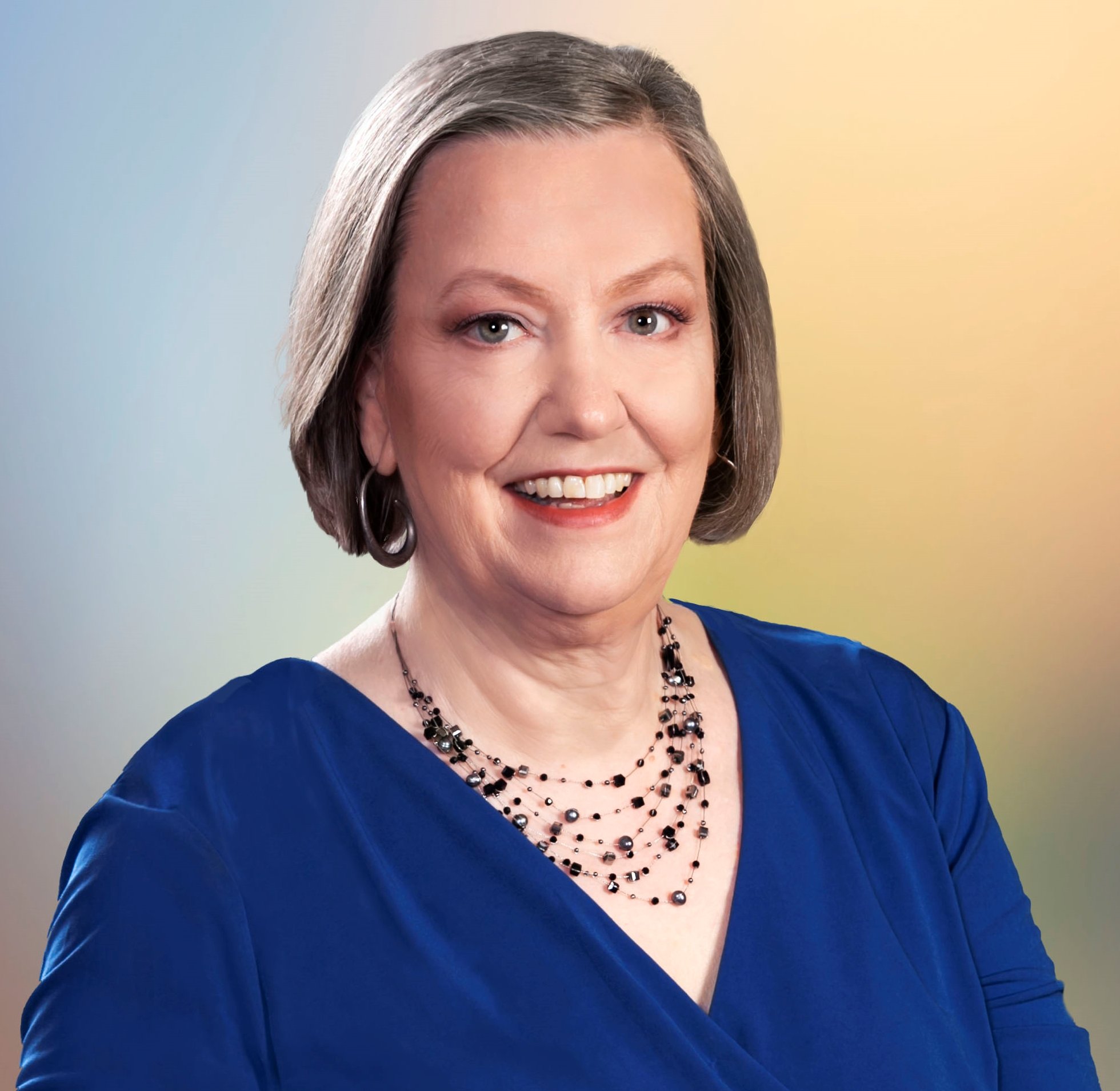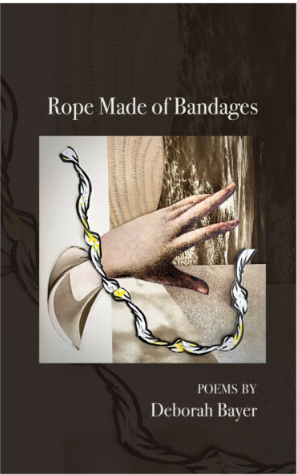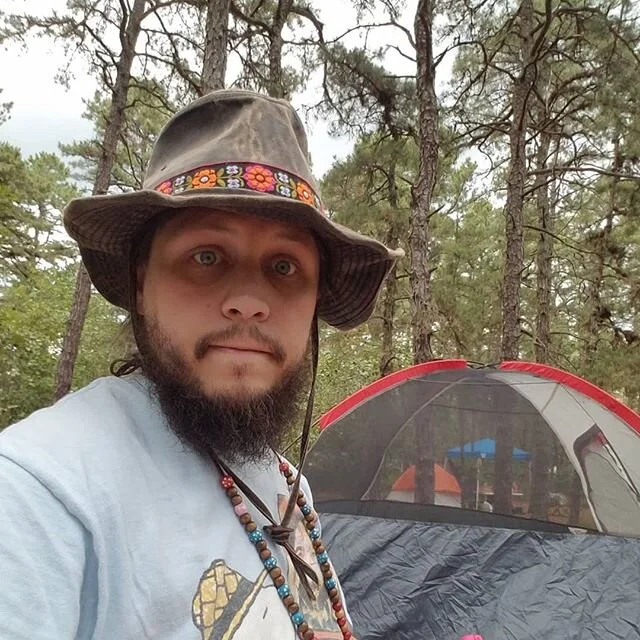In the Temple of Healing
by Deborah Bayer
When I leave the sea-filled chamber,
the guide gives me a gift, a clean
white handkerchief with two stonestied in the corner. I untie the knot,
take one of the prisms in my hand. It fits
my left hand true when my fingers close
over the polished surface. I feel a deep
hum. The other rock takes getting used to.
It’s the one I keep with me. I bring it
to the clinic in the pocket of my backpack,
nowhere near my cell phone. I fear sharp
edges will mar the screen, or the phone
signal will interfere with the energy|.
The surface of the quartz is scratched
and sticky, as if it once bore a price tag.
Soap and water won’t smooth it; neither
will alcohol. It doesn’t come clean, but
it holds my warmth as it transmits the light,
broken into seven colors. I have two
crystals, an unblemished one at my bedside
and a rough one in my pocket. Do I love both the same? No, I love one more.
Let the pristine one stay home, protected.|The scarred and clouded one is me.
What draws you to poetry as an artistic medium over other art forms?
I first became serious about writing poems when I worked long, unpredictable hours as a full-time physician. The writing was a way of processing complicated emotions. I didn’t copy William Carlos Williams’ capturing thoughts on a prescription pad, but I appreciated the short form of poetry because of time constraints. As I improved my craft through workshops and classes, I continued writing. Poems work the way my brain works, through compression of language and associative leaps that trust the reader to follow.
Your debut chapbook, Rope Made of Bandages, entered the world last year through Finishing Line Press. Tell us about it!
This book includes poems that I wrote over ten years. The collection braids the themes of being a physician, being a patient, and bringing myself to retire from seeing patients, many of whom I had known for over twenty years. I wouldn’t have been able to get this book into the world without the help of my poetry critique group, the Leap Street poets, and the book is dedicated to them. They will be joining me in a reading to celebrate the one-year anniversary of my chapbook on March 27, 2024. https://noyesmuseum.org/all-noyes-events/2021/9/15/world-above-poetry-open-mic-9fmpd-39hcw-hle5n-wmfjk-kymsp-46n7c-wszl9-29k2y-5n8sc-nmykn-8p7e3-3cr7g-xtwe6-gdzdp-exwtm-835ml-ec7yw-wap5n-et44f-2lkt3-4r2c5-hc8np-9lchx
How do you get from an all-possible blank page to a near finished work? How would you describe your process?
When I have unlimited time, my poems often begin as prose freewrites that I shape into poems. When I’m under time pressure to compose a poem, I prefer writing in poetic forms. I like having a container for the poem. And the form distracts my thinking brain. If there’s any genius in any of my poems, I attribute it all to my unconscious mind. I once wrote a sonnet about the rigors of being a physician that collided with a memory of a childhood ballet class.
You retired from the practice of Infectious Disease and Palliative Care. Do you find there are crossovers between the practice of medicine and the practice of poetry?
Yes, the crossovers between medicine and poetry are many. They both hinge on communication and relationships. I’m most struck by these crossovers when I’m at a poetry reading. There is a kind of open receptivity needed to listen to poems, just as there is a need to be receptive when listening to a patient. And when I’m reading, I am open to how listeners respond. Poetry and medicine are both two-way communications: doctor-patient and writer-reader/listener. I witnessed the crossover most sharply when I ran hospice weekly meetings. I began each meeting by reading a poem, a way of showing that our work there was not merely clinical.
You facilitate writing groups via Zoom utilizing the Amherst Writers & Artists (AWA) methodology and the Narrative Medicine workshop format. Can you tell us a little bit about these methodologies and formats as well as the writing groups themselves?
I draw on my experiences as both a writer and physician when I facilitate writing groups. The AWA method is designed to create a safe and supportive environment. Participants generate writing to a prompt and then read it aloud to the group. The two methods dovetail nicely. Narrative Medicine puts more emphasis on group discussion of a piece of art before a short write, while the AWA method puts more emphasis on the writing. I find that combining the methods helps writers surprise themselves when they put words down on a page. Because the meetings are held on Zoom, writers from across the country and overseas meet in the same virtual room.
Where can readers read more of your work/buy your book?
I post weekly on my Substack, Healers Write, Writers Heal: https://deborahbayer.substack.com
Rope Made of Bandages is available on the publisher’s website: https://www.finishinglinepress.com/product/rope-made-of-bandages-by-deborah-bayer/
Or, signed copies are available on my website: https://www.harmonycommllc.com/shop/
Deborah Bayer is mostly retired after nearly thirty years of caring for HIV patients in the Atlantic City area. Her poems have appeared or are forthcoming in Bellevue Literary Review, U.S. 1 Worksheets, Peregrine (AWA Press), Trampoline, Schuylkill Valley Journal, and elsewhere. She is working on a memoir about finding her way through a sometimes toxic medical culture. She spent her early years in Brazil and now lives in Galloway Township with her husband.
Ways to find me: https://bit.ly/m/DebPoet
John Wojtowicz grew up working on his family’s azalea and rhododendron nursery in the backwoods of what Ginsberg dubbed “nowhere Zen New Jersey.” Currently, he works as a licensed clinical social worker and adjunct professor. He has been featured on Rowan University’s Writer’s Roundtable on 89.7 WGLS-FM and several of his poems were chosen to be exhibited in Princeton University's 2021 Unique Minds: Creative Voices art show at the Lewis Center for the Arts. He has been nominated 3x for a Pushcart Prize and serves as the Local Lyrics contributor for The Mad Poets Society Blog. His debut chapbook Roadside Oddities: A Poetic Guide to American Oddities was released in early 2022 and can be purchased at www.johnwojtowicz.com. John lives with his wife and two children in Upper Deerfield, NJ.



